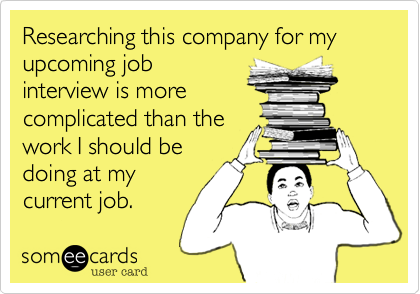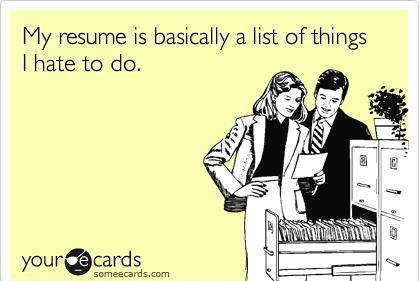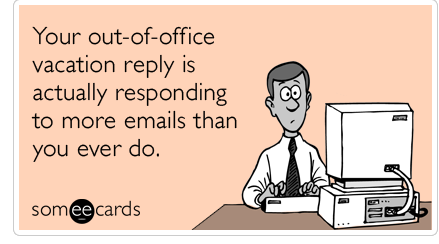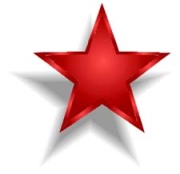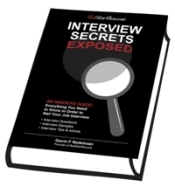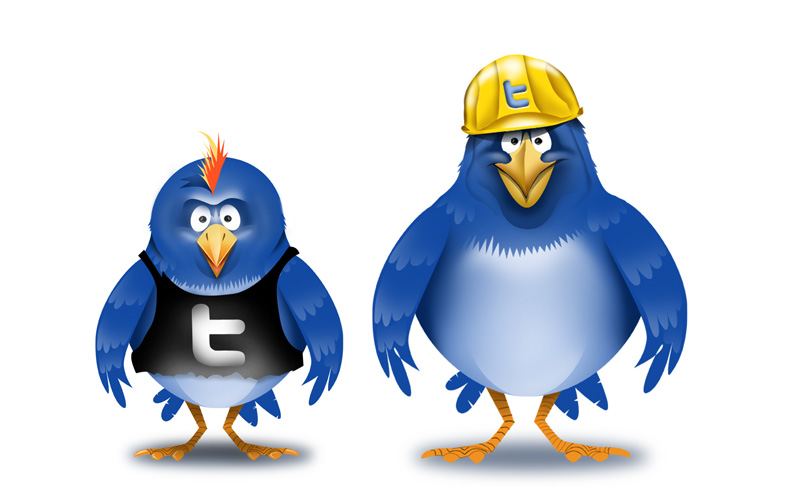Most Common Job Interview Questions
 Job Interviewing is all about research, confidence and creating a good rapport. The hiring manager needs to know that you are capable of performing the tasks of the job and also that you will be a good addition to the team.
Job Interviewing is all about research, confidence and creating a good rapport. The hiring manager needs to know that you are capable of performing the tasks of the job and also that you will be a good addition to the team.
Without doubt the two most asked job interview questions are “what are your greatest strengths and weaknesses”. Below are some tips on how to answer these tricky questions.
1) What are your greatest strengths?
Few candidates can show up to an interview and answer every question with ease. Preparation is key to a successful interview. If you have to sit and think about what your greatest strengths are during the interview, you’ll risk appearing unsure of your own capabilities and the interviewer won’t be reassured in your ability to perform well in the position. Prior to an interview, you should know exactly what your top strengths are in the workplace. Make a list of all your strengths and then choose the top 5 you want to express in the interview based on the desired skills and attributes for the specific position you are interviewing for. You should always remember to back up the strengths you profess with examples of times you have demonstrated those strengths in the workplace. Use this question to highlight how your attributes will help you succeed in this position.
Tip: Use the job posting as a guide to match your own strengths with the skills and attributes the company is looking for in an ideal candidate. Although you might be a whiz with numbers, there’s no point listing it as your greatest strength if you’ll be working directly with clients and not using any numbers in the position. Be honest and don’t say you’re great at something you’re not, however you should prioritize the key strengths you want to express to the interviewer with the ones they list on the job description. For example, if the job description says the candidate they want is “highly detail-oriented and organized”, then one of the strengths you mention should be your strong organizational skills or that you are detail-oriented.
2) What is your biggest weakness?
This is a tricky question if you’re not prepared. You are trying to land the job, so of course you don’t want to tell employers all of your weaknesses that may make you look bad. On the other hand, you also don’t want to avoid the question, lie and say you have no weaknesses, or give a clichéd response. For example, I’ve heard a lot of candidates say their biggest weakness is that they are a perfectionist in the workplace…really? Although some interviewers will enjoy a joke to this question, most hiring managers want a real answer.
This is a key question you need to prepare for before the interview. Don’t mention any weaknesses that will prevent you from getting hired for the job. Remember the weakness should be work-related so hiring managers don’t want to hear about how you leave your dishes in the sink for over a week. A well thought-out answer can turn this tricky question into a positive. Be sure to back up each weakness with things you are proactively doing to improve on that weakness.
The best way to respond to this question is to either:
a) Mention a weakness that is irrelevant (or at least not critical) to the position you are applying for. In order to be effective, you should already know the key skills and attributes desirable for the position and think about skills that are not essential to succeed in the position. You can even find weaknesses that can actually be seen as strengths for certain positions. For example, if the position requires strong attention to detail you can say that sometimes you are overly meticulous about the details of a project.
b) State a weakness that is only a weakness because you haven’t had the opportunity to develop your skills in that area. For example, you can say that although you’ve taken a course in public speaking, you haven’t had the opportunity to use your presentation skills in your previous position and you’d like to develop your skills more in this area.
© RedStarResume Publications – http://www.redstarresume.com
Follow us on Twitter: http://twitter.com/RedStarResume
Do you require Australian Resume Writing? Contact us today! The journey to finding your dream job starts with a brand new resume
Increase your salary and make more money
 Would you like an increase in your salary? Let’s say a 20 percent increase and a big bonus. Sounds good doesn’t it?
Would you like an increase in your salary? Let’s say a 20 percent increase and a big bonus. Sounds good doesn’t it?
Who doesn’t want to make more money? Before you march into your boss’s office demanding an increase in pay you need to first take a step back and develop a game plan to approaching your boss. There is a right way and a wrong way to ask for more money and when approached correctly you give yourself the greatest opportunity of receiving your pay rise. When done incorrectly you can greatly diminish your own reputation.
Rule 1: Pick your timing
Timing is crucial and it is important that you pick the exact right time to speak with your boss about receiving a pay rise. Let your boss know that you wish to speak to him or her at a time that is convenient for them.
Rule 2: Preparation
When asking for more money it is so important that you are adequately prepared and know exactly what you want to say. You need to be able to provide examples of why you deserve more money and how you have provided value to the business. Remember no one is going to give you money just because you feel that you deserve it. Just like a lawyer presents the case to the jury, it is as necessary to present your case to your boss for a pay rise.
Remember – the best examples you can provide are backed up by examples. If you helped make or save the company money – back this up with an example. You’re the lawyer and you need to prove to your boss beyond any reasonable doubt that you deserve a pay rise.
Rule 3: Execution
By following rule 2 and being prepared with what you want to say, you also need to be able to execute your plan. If you are asking for more money you need to have a figure in mind. By researching what other people in your field are making is a good way to begin to work out how much of a salary increase you are going to ask for. (There are also many free internet sites that provide salary surveys). The worst possible thing to do is not have an amount in mind that you require. You need to be direct and provide examples as to why you have chosen this amount so your boss understands that you are not just trying to get more money but that you actually deserve more money.
Rule 4: Confidence:
Don’t be scared or intimidated about asking for more money if you believe you deserve it. Have confidence in yourself and the value that you bring to the business. Before you begin your discussion have a think about potential questions or possible objections you may encounter and prepare yourself to be ready to answer these questions.
© RedStarResume Publications – http://www.redstarresume.com.au
RedStarResume is the number one source for expert Resume Writing and Cover Letter Services
During the last decade, RedStarResume has successfully written hundreds of professional resumes for candidates across the globe. From the student or entry level position to the CEO, our unique, custom-made resumes are written specifically to match the goals and desires of our clients and to help them land jobs.
Beware Of Using An Online Resume Template
 The easiest thing to do when you begin job seeking is to search online for a resume template and replicate that templates with your own professional history. Easy, right? Wrong. Using a resume template will not increase your chances of getting hired because it does exactly the opposite; your resume is supposed to present a unique professional first impression in order to stand out from the competition.
The easiest thing to do when you begin job seeking is to search online for a resume template and replicate that templates with your own professional history. Easy, right? Wrong. Using a resume template will not increase your chances of getting hired because it does exactly the opposite; your resume is supposed to present a unique professional first impression in order to stand out from the competition.
When it comes to finding a new job, increasing your salary and promoting your skills and achievements, the way your resume is presented, structured and written can be the difference between success and failure. With the huge increase of online submissions via employment, career and recruitment sites, it is now easier than ever to apply for jobs. In competitive industries, hiring managers can receive over 1,000 resumes for a particular role. In fact, due to the high volume of applications, many companies now use automated software programs (Automated Resume Screeners) to help with the hiring and elimination process. Many basic resume templates found online can actually interfere with these software programs as the programs are unable to read pictures, tables or images… making your resume unreadable.
Start with a blank piece of paper – what is the best way to make my resume stand out?
Before you even begin the task of writing your resume I would advise you to prepare a list of all the great quantitative achievements and value added skills that you can bring to your next job. Remember that hiring managers are interested in how you are going to be a great asset for the company, and the best way to present this information is through your past achievements. In addition to listing your achievements, include examples and evidence that back up your achievements, and lead with this information.
Before Example:
“Project managed a team that completed the project on time and on budget leading to increased revenues and a reduction in overall costs”
This statement comes across very generic with no evidence to back up the statements. In fact, this statement actually asks more questions than it gives answers. How many people did you project manage? What was the increase in revenues? How did you reduce costs?
After Example (lead with the achievements):
Managed a team of 15 contractors that increased operating revenues (22%, YTD) and reduced costs (18%, YTD) through the effective implementation of continuous process improvements and KPI management.
Three more resume writing tips:
1) Only include information on your resume that adds values
Statistically you only have between 10-20 seconds to attract the reader’s attention. If you fail to make an impression in this time period your resume will most probably be deleted. Remove all unnecessary information. “Interests”, “Hobbies” etc. do not belong on your resume.
2) Bullet points / sub bullet points work to attract the reader’s attention and improve readability
Long sentences are boring to read and make it harder for the reader to recognize the achievement. Using headings, bullet points and sub bullet points will not only professionalize the look of your resume, but it will make the reading process a lot easier.
3) Include a “Qualifications Profile”
A qualifications profile is a fantastic way to introduce yourself to the reader and make a great first impression. As opposed to an objective statement (where you tell the reader what you want), a qualifications profile promotes to the reader the skills (qualifications) you have that will make you the perfect person for their particular role. A strong qualifications profile can immediately develop a great first impression (a weak profile can do the exact opposite).
© RedStarResume Publications – http://www.redstarresume.com
Job Application Timesavers
 The job search process can be an exciting, yet daunting task for job seekers. Those re-entering the job search market – and those entering for the first time – are finding that applying for a job is not as quick and simple as it used to be. A process that used to involve merely submitting a resume and cover letter is now much more detailed, and job applicants are finding the process to be more time consuming than ever.
The job search process can be an exciting, yet daunting task for job seekers. Those re-entering the job search market – and those entering for the first time – are finding that applying for a job is not as quick and simple as it used to be. A process that used to involve merely submitting a resume and cover letter is now much more detailed, and job applicants are finding the process to be more time consuming than ever.
While applying for a job still involves the submission of a resume and cover letter, many companies are also having applicants create user names and profiles and fill out questionnaires before they are able to submit their applications. This can add tens of minutes – if not more – to the job search process, and can’t be avoided if an online submission is required. The good news is we’ve collated some feedback from recent job applicants and have put together some tips below that might help you speed up the process:
Have your cover letter ready to go:
Before you start applying, have a basic cover letter written that can be tweaked and amended according to the job you’re applying for.
Select the option to pre-fill answers, if available:
Some programs are designed where you can upload your resume, and it will pre-populate answers to an online questionnaire based on the information in your resume. This way, you don’t have to write your name, contact info, work history/dates, etc, over and over again. Select this option if it’s available – it will definitely save you time! Make sure, however, that you double-check it to make sure the information has been populated correctly.
Save your written answers to questionnaires in a separate document:
Many job applications will include supplemental, but generic, questions to be answered. Questions such as “explain any employment gaps over the past 10 years” or “what are your salary requirements?” If you find yourself answering questions like this, copy/paste your answers and save them in a separate document on your computer – chances are that you will see the same questions again on another application. This way, you will have your answers all ready to go!
The most important tip – be patient!
While it may seem like you are answering the same questions over and over again, remember that you application and answers will be evaluated by a hiring manager who knows nothing about you. Sell yourself to them – take time and care to answer all questions accurately and professionally. Don’t get frustrated and rush your application.
© RedStarResume Publications – http://www.redstarresume.com/
The Job search market can be a tricky place to navigate. Whether you are just starting out, moving up the ladder or changing your current situation, RedStarResume have all the resources to help improve your chances of success.
7 Most Frequently Asked Resume Writing Questions
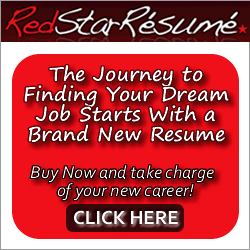 Do you have a question about your resume? Contact the team at RedStarResume. Our Resume Writing specialists are available 24/7 to answer any tricky resume questions that you may have.
Do you have a question about your resume? Contact the team at RedStarResume. Our Resume Writing specialists are available 24/7 to answer any tricky resume questions that you may have.
Should I include my picture on my resume?
Different countries have different requirements when it comes to using a picture on your resume. Generally speaking for Australia, a picture is not required on your resume. There are exceptions to this rule, of course. For example, if you’re applying for a modelling position, a picture would be necessary.
How far back should my resume go?
Generally speaking, it is best to go back 10-15 years. Anything further than this is not necessary. If you are changing your career or applying for a role that you had many years ago, however, it would be worthwhile to include these jobs to show the hiring manager that you have had experience in that particular role. Don’t forget that in many industries such as Accounting and IT, many rules and technologies have changed over time, so don’t get too involved in listing information that may not be relevant today.
Should I include a cover letter with my resume?
Yes – always include a cover letter even if the job description does not specifically ask for it.
What is the best way to make my resume “shine”?
Go through your resume and identify all of your responsibilities and duties and turn these into achievement statements. Use quantitative evidence to back up your statements.
How long should my resume be?
There is no exact rule when it comes to the length of your resume. The most important thing is to only include information that adds value to your resume. Generally speaking for a student or young professional, I would limit the resume to 2 pages. For a professional or executive, a 2- 3 page limit.
Should I include hobbies or interests on my resume?
The aim of the resume is to showcase your skills to the reader. Do not include hobbies or interests unless they can add significance to your resume application. For example, if you are applying for a job in the mining industry, hobbies such as reading, playing tennis and sky diving are not relevant to the types of jobs you are applying for and will add no value to your job application.
Should I include my marital status on my resume?
Definitely not – when it comes to personal information such as marital status, religion, date of birth etc., this information should be excluded from the resume. The only personal information that you need to include is your contact number and email. I often encourage including your LinkedIn profile URL as this is a great way to stand out from the competition.
© RedStarResume Publications – http://www.redstarresume.com/
Follow us on Twitter: http://twitter.com/RedStarResume
What Do You Do When Your Resume Is Bare?
 One of the first steps in making the transition from student to job seeker is to create a professional resume. At first glance it may seem like you don’t have much to put on your resume, however if you assess your past experiences you’ll realize you have more relevant experience to highlight on your resume than you think. Employers look to your past performance to predict your success in the future. As a student or recent graduate, jobs aren’t the only way you can demonstrate your prior success. Remember that resume writing is all about highlighting your achievements. Don’t forget to include examples and evidence to further promote your value added skills to hiring managers.
One of the first steps in making the transition from student to job seeker is to create a professional resume. At first glance it may seem like you don’t have much to put on your resume, however if you assess your past experiences you’ll realize you have more relevant experience to highlight on your resume than you think. Employers look to your past performance to predict your success in the future. As a student or recent graduate, jobs aren’t the only way you can demonstrate your prior success. Remember that resume writing is all about highlighting your achievements. Don’t forget to include examples and evidence to further promote your value added skills to hiring managers.
6 Things to Include on your Resume as a Current Student or Recent Graduate…
Relevant Coursework:
As a student or recent graduate, employers realize that so far most of your life has been spent in the classroom, learning and studying. It’s beneficial to highlight coursework that is related to the field you’re applying for. This can show employers that you’ve learned relevant material from your studies and that you have thorough knowledge that can be an asset to their company.
Internships:
Of course you’ll want to include any and all student internships you’ve had in the past. It’s always better if you’ve participated in an internship related to the jobs you’re applying for; however having any type of internship can show a level of maturity and responsibility. It also shows that you’ve been exposed to a real working environment and are better prepared to enter the workforce.
Part-time/ Summer Jobs:
Don’t belittle your part-time or seasonal work experience. A job in retail or summer camp may not seem relevant to the field you’re going into, however you learn a great deal of foundational skills by having a part-time job that prepares you for having a full-time position. Employers like to see that you’re mature enough to hold a job and learn some basic skills and work ethic.
Volunteer Work:
Volunteering can also provide valuable skills and promote leadership and cooperation. It’s good to include any volunteering you’ve been part of in the past, as it can also demonstrate maturity, responsibility, team work and cooperation.
Extra-curricular Activities:
Feel free to list relevant extra-curricular activities on your resume. Anything you do on your free time that shows commitment, leadership, team work, etc. You can demonstrate skills you’ve acquired through your extra-curricular activities. For example if you’ve played on a sports team while in school, this can show you’re a team player and able to successfully handle multiple tasks.
Memberships/ Affiliations:
Including relevant memberships and affiliations can help demonstrate your commitment to a particular field of study, issue, or show your success in a certain area if membership is merit-based.
About the Author:
Amanda Ryan is a Program Development Associate & Senior Resume Writer at RedStarResume. Amanda is a highly skilled resume writing expert and career expert who also specialises in creating, writing and developing career content, working alongside student and graduate job seekers and developing career content for newsletters, partners and career websites.
Simple Steps to Job Interviewing
 Making the right impression in your job interview is one of the most important steps in your future career. Many people don’t realise that being successful in your interview begins before you even arrive at the interview. Job interviewing requires careful planning, otherwise you will significantly reduce the chance of getting the job. In the current economic climate, competition for jobs is extreme and hiring managers can receive hundreds of job candidates for every job they advertise. In order to stand out from the crowd, you need to properly prepare for your job interview.
Making the right impression in your job interview is one of the most important steps in your future career. Many people don’t realise that being successful in your interview begins before you even arrive at the interview. Job interviewing requires careful planning, otherwise you will significantly reduce the chance of getting the job. In the current economic climate, competition for jobs is extreme and hiring managers can receive hundreds of job candidates for every job they advertise. In order to stand out from the crowd, you need to properly prepare for your job interview.
Research is the key to success
The first (and sometimes most important) thing to do is conduct research about the job and company. With so much company information available online you can easily begin to educate yourself on the company’s culture, philosophy and values. The more information you can acquire the better your chances at impressing the interviewer. With knowledge of the company you can subtlety use this information during the interview (when appropriate). Don’t overdo it though – you don’t want to sound like you’re repeating their whole website!
Practice makes perfect
A great way to practice job interviewing is to role play with a friend or family member. Ask them to question you on your resume and the job you’re applying for to fully prepare you for the interview. Remember the 4 Ws – Who, What, Where and Why. The interviewer will ask ‘Who’ you are, so give them a little detail about your life without overdoing it. Interviewers will also get you to explain ‘What’ your skills are. If you have done your research about the company properly, you will have no problem doing this. Make sure you focus mainly on the skills that the company or job is looking for.
The interviewer will also ask you ‘Where’ you have worked before. It’s worth calling up your previous job (if any) and asking them to write a reference just to back up your claims. Explain the position and the responsibilities that you had with your last job. The final W – ‘Why’ – is the most important of them all. The interviewer will ask you ‘Why’ you want this job. Think of a clever answer for this one. Don’t just say you’re doing it for the money, for example. Say something about bringing and valuable skills to their workplace.
Dress to impress
After completing your research you can begin to plan your attire. Remember that you should always dress to fit the context of a job. If you’re applying for a casual gardening company, a suit might not be ideal, but if you’re applying for a position as an accountant or a banker, then a full suit would be the required minimum.
Final point:
Don’t forget that non-verbal messages are often more important than words, so make sure that you greet your interviewer with a firm handshake. Maintaining correct posture and eye contact are also two very important non-verbal messages as they portray a more confident and presentable image.
© RedStarResume Publications – http://www.redstarresume.com/
The Job search market can be a tricky place to navigate. Whether you are just starting out, moving up the ladder or changing your current situation, RedStarResume have all the resources to help improve your chances of success.

